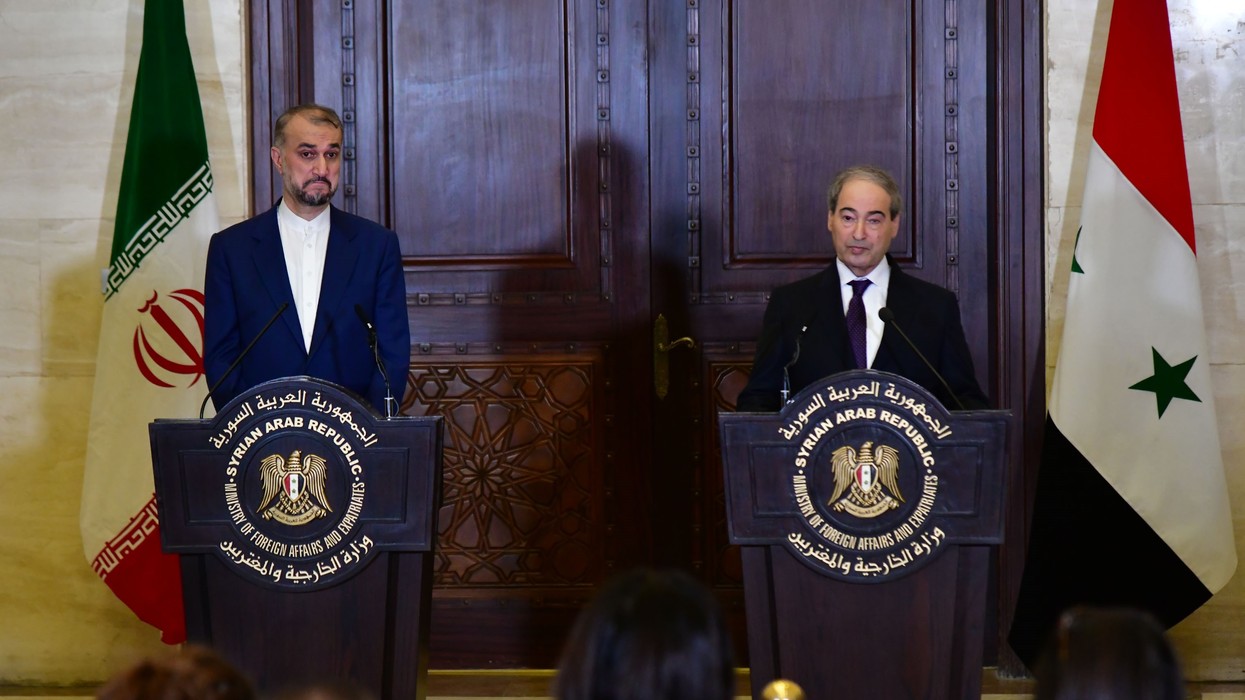November, 23 2011, 12:42pm EDT
For Immediate Release
Contact:
Lea Radick, Communications Officer – Phone: +1 (240) 450-3529
lradick@handicap-international.us
Landmine Monitor 2011: Handicap International Denounces New Use of Anti-Personnel Landmines and Calls for the Universalization of the Ottawa Mine Ban Treaty
The Landmine Monitor 2011 - the annual report on the Ottawa Mine Ban Treaty[1] - which was released Wednesday in Bangkok, found that at least three States not party to the treaty used anti-personnel landmines in 2011. Handicap International condemns the use of these weapons, which continue to injure and kill civilians in countries around the world. The organization was also alarmed by the high number of landmine victims reported in this year's Landmine Monitor.
WASHINGTON
The Landmine Monitor 2011 - the annual report on the Ottawa Mine Ban Treaty[1] - which was released Wednesday in Bangkok, found that at least three States not party to the treaty used anti-personnel landmines in 2011. Handicap International condemns the use of these weapons, which continue to injure and kill civilians in countries around the world. The organization was also alarmed by the high number of landmine victims reported in this year's Landmine Monitor.
While the report presents positive conclusions concerning mine clearance and the levels of mine-action funding, it also demonstrates the need to continue campaigning against these weapons, which remain a deadly threat to civilians. Handicap International calls on all countries present at the 11th Meeting of States Parties to be held in Cambodia from November 28 to December 2 to push for the universalization of the treaty and to make firm commitments to ensure that the treaty is fully implemented.
The Landmine Monitor 2011 illustrates the need for States throughout the world to join the Ottawa Mine Ban Treaty in order to make it a universal standard. At least three States not party to the treaty used anti-personnel landmines in 2011: Israel, Libya and Myanmar (Burma). There are strong suspicions that Syria also may have used these weapons. Between 2009 and 2010, Myanmar was the only country to have used landmines. Four independent armed groups in Afghanistan, Colombia, Myanmar and Pakistan also used these weapons from 2010 to 2011.
"These new cases of the use of anti-personnel landmines are unacceptable and extremely worrying," said Paul Vermeulen, Head of Advocacy and Institutional Relations at Handicap International. "We ask all States Parties to firmly condemn any new use of anti-personnel landmines and to implement all possible measures in order to stop the use of these weapons."
Another negative finding shows that Belarus, Greece, Turkey and Ukraine have not met the deadline for destroying their stockpiles, in violation of the treaty. "It is unacceptable for States Parties not to implement one of the most important articles of the treaty," Vermeulen said. The Landmine Monitor 2011 also reports that there have been thousands of new victims of anti-personnel landmines. In 2010, 4,191 victims of landmines and unexploded remnants of war were identified.
These findings are disappointing as they taint the positive results concerning mine clearance reported in the Landmine Monitor 2011. Through the efforts of States Parties to the treaty and civil society campaigns against these weapons, decontamination of mined land reached an unprecedented level in 2010: Almost 177 square miles of land were demined and more than 1.6 million unexploded remnants of war were destroyed in just one year. "Each weapon destroyed represents a reduction in new victims and genuine hope for the future for the thousands of civilians living with the threat of these weapons on a day-to-day basis," said Vermeulen.
Mine-action funding also increased significantly in 2010: $637 million was granted by the international community and affected countries, 31 international funding bodies alone provided $480 million, an increase of 7 percent from the previous year. "The rapid and systematic elimination of all mine fields requires greater, more determined mobilization by all States Parties," explained Vermeulen, who added that "79 countries and territories are still contaminated by these weapons." "We regret, however, that less than 10 percent of funding is allocated to victim assistance; [victims] remain largely forgotten by the treaty." More than 500,000 survivors of accidents caused by mines or unexploded remnants of war require lifelong assistance, and the $43 million allocated to this provision falls far short of meeting the real needs of victims.
The 11th Meeting of States Parties to the Ottawa Mine Ban Treaty will be held from November 28 to December 2 in Phnom Penh, Cambodia, one of the most mine-affected countries in the world. This meeting will be crucial in reminding States of their obligations, particularly in terms of victim assistance. The United States, not yet a State Party to the Mine Ban Treaty, will attend the conference as an observer. The U.S. has not used landmines since 1991 and has not produced any new landmines since 1997. The Obama administration launched a review of U.S. landmine policy in December 2009; this review - which the international community hopes will culminate in U.S. accession to the Mine Ban Treaty, has not yet concluded.
At the 11th Meeting of States Parties, Handicap International will continue to lobby States to ensure they account for the realities in the field. Only a long-term commitment with sufficient resources can free communities from the threat posed by these barbaric weapons.
[1]The Landmine Monitor report is produced by several NGOs, including Handicap International.
LATEST NEWS
GOP Affirms 2025 Tax Plan If Trump Wins: More Giveaways to the Rich
"There are 20 years of data showing trickle-down economics doesn't work, yet today will still be a whole lot of revisionist history and wishful thinking on the singular largest failure of fiscal policy in recent memory," said Rep. Richard Neal.
Apr 12, 2024
As House Republicans prepare for Donald Trump's possible White House return by plotting to expand the billionaire and corporate tax cuts that were the cornerstone of the former president's first administration, congressional Democrats and advocates for working Americans warned Thursday that a second Trump term would bring more of the same inequality-exacerbating policies.
The GOP-controlled House Ways and Means Committee held a hearing Thursday on "expanding the success" of the 2017 Tax Cuts and Jobs Act (TCJA)—widely derided by opponents as the "GOP Tax Scam." Republican committee members couched a policy that the Center for Popular Democracy said "delivered big benefits to the rich and corporations but nearly none for working families" as "relief to help hardworking American families."
Rep. Richard Neal (D-Mass.), the committee's ranking member, pushed back during Thursday's hearing, noting that "in the last three decades, Republicans have skyrocketed the deficit with trillions in tax cuts for billionaires and big corporations, always with the same result: the top 1% benefits while nothing trickles down for workers."
Neal continued:
In 2017, Ways and Means Democrats saw the GOP corporate tax giveaway for what it was: a scam. We knew that their Tax Scam would disproportionately benefit the wealthy and well-connected. We knew that it wouldn't pay for itself. We knew that big corporations, not their workers, would feel the most benefit. Six years since the GOP Tax Scam was signed into law, we've been proven right on every count. It didn't pay for itself, it didn't increase revenue, and it didn't increase wages.
A recent study whose authors included [Joint Committee on Taxation] economists—let that sink in—found that ALL of the corporate gains from TCJA went to shareholders and high-paid executives, with absolutely nothing flowing to workers. Fifty-six percent of the tax cuts enriched shareholders, and the remaining 44% lined the pockets of execs. Zero percent went to workers. ZERO!
"There are 20 years of data showing trickle-down economics doesn't work, yet today will still be a whole lot of revisionist history and wishful thinking on the singular largest failure of fiscal policy in recent memory," Neal added. "If workers and the middle class are actually your priorities, putting them ahead of big corporations and billionaires is the only way."
Rep. Don Beyer (D-Va.)—who also sits on the committee—agreed, asserting on social media that "the Trump tax cuts were a huge 'success' if you were a billionaire or an executive at a large corporation. They made out like bandits, with a huge amount of the benefits from the GOP tax law going to the wealthiest. Now Republicans want to give the superrich even more tax cuts."
Trump is open about this. At an exclusive fundraiser at his Mar-a-Lago resort in Florida last week, he shouted out his "rich as hell" supporters, telling them, "We're gonna give you tax cuts, we're gonna pay off our debt."
That's the same debt that soared by around $8 trillion during Trump's term—largely as a result of his tax cuts. Meanwhile, U.S. billionaires have collectively gotten $2.2 trillion richer since the GOP tax cuts took effect.
With many provisions of the TCJA set to expire at the end of 2025, progressives are underscoring what's at stake in this November's elections.
"Today the American people got a preview of what's in store for them next year if the Trump Tax Scam expires under conservative leadership," Groundwork Collaborative executive director Lindsay Owens said following the House hearing. "The conservative playbook for the 2025 tax fight is coming into focus, and we can be sure it includes more giveaways for the wealthy and corporations."
Keep ReadingShow Less
'Lawless Con Man' Leonard Leo Defies Senate Subpoena Over Supreme Court Gifts
"This subpoena is a direct result of Mr. Leo's own actions and choices," said Judiciary Committee Chair Dick Durbin.
Apr 12, 2024
"Incredible," said one journalist on Friday of right-wing legal activist Leonard Leo's reasons for refusing to comply with a subpoena from the Senate Judiciary Committee as the panel investigates conservative Supreme Court justices' relationships with Leo and other Republican operatives and donors.
The Federalist Society co-chairman told The Washington Post that the subpoena was "politically motivated."
"I am not capitulating to [committee Chair Dick Durbin's (D-Ill.)] lawless support of Sen. Sheldon Whitehouse and the left's dark money effort to silence and cancel political opposition," said Leo, who has lobbied for the appointments of far-right judges to federal benches, in a statement.
The subpoena came over four months after the committee voted along party lines to subpoena Leo and billionaire GOP donor Harlan Crow following numerous reports about luxury travel and gifts they and others bestowed on Justices Clarence Thomas and Samuel Alito.
ProPublica revealed last June that Leo organized a luxury fishing trip to Alaska for Alito, with lodging and private jet travel paid for, in 2008. The trip was not included on Alito's federally required financial disclosure forms, continuing a pattern that ProPublica first reported on last April with several luxury vacations, real estate transactions, and other financial gifts to Thomas that were paid for by Crow.
Durbin said Thursday that the subpoena was issued because of the "blanket refusal to cooperate" with the investigation that Leo has displayed since last July.
"His outright defiance left the committee with no other choice but to move forward with compulsory process. For that reason, I have issued a subpoena to Mr. Leo," said Durbin. "Mr. Leo has played a central role in the ethics crisis plaguing the Supreme Court and, unlike the other recipients of information requests in this matter, he has done nothing but stonewall the committee. This subpoena is a direct result of Mr. Leo's own actions and choices."
The ethics violations revealed by ProPublica's reporting forced the Supreme Court last fall to adopt a code of conduct for the first time, modeled on the rules followed by judges on lower federal courts.
But ethics watchdogs labeled the code a "toothless PR stunt" and a "cover-up for Clarence Thomas," as it did not include an enforcement mechanism and provided the justices with discretion over recusal decisions.
Debt relief advocates called on Alito to recuse himself last year from two cases pertaining to Biden's student debt cancellation program, citing the reporting on Leo's gifts to the justice. The plane Alito took to Alaska was owned by billionaire investor Paul Singer, who has financially backed groups that lobbied the court to overturn Biden's plan.
The court struck down the debt relief program last June.
Like former President Donald Trump, said Alex Aronson, former chief counsel for Judiciary Committee senior member Sen. Sheldon Whitehouse (D-R.I.), "the other man most responsible for shaping our Supreme Court's runaway majority is a lawless con man and crook."
Caroline Ciccone, president of government watchdog Accountable.US, said Friday that "Supreme Court billionaire matchmaker Leonard Leo" is the force behind "a full-blown corruption crisis has plagued the high court for over a year, undermining its credibility and plummeting public trust in the court to record lows."
"Today's subpoena is a critical step toward accountability, and toward ensuring that our high court adheres to the highest possible ethics standards," said Ciccone. "As a result of the strong leadership of Chairman Durbin and the Judiciary Committee, we can now begin to get to the bottom of the corruption crisis pervading the Supreme Court."
With Leo refusing to comply with the subpoena, Democrats would need to hold a vote in the closely divided Senate to seek enforcement.
Former Trump aide Peter Navarro was found guilty of contempt of Congress for defying a subpoena from the committee that investigated the January 6, 2021 insurrection, and reported to a federal prison last month to serve his four-month sentence.
"Leonard Leo thinks he's above the law just like Navarro did," said one attorney. "We'll see if he's right."
Keep ReadingShow Less
Fears of 'Disastrous' War Grow as Iran Weighs Retaliation for Israel Consulate Attack
"The U.S. ought to be distancing itself from Israel's illegal attack, but instead the Biden administration is moving to shield Israel from the consequences of its own actions."
Apr 12, 2024
A reportedly imminent Iranian response to Israel's deadly bombing of Tehran's consulate in the Syrian capital earlier this month is heightening fears of a devastating regional conflict in which the United States—Israel's top ally and arms supplier—could become directly involved.
The U.S. embassy in Jerusalem issued a security warning on Thursday and restricted its employees' travel ahead of a possible Iranian response as soon as Friday. U.S. officials, according toPolitico, have assessed that "Iran is calibrating its plans for a major retaliatory strike against Israel to send a message—but not spark a regional war that compels Washington to respond."
U.S. President Joe Biden and top administration officials have in recent days stressed their "ironclad" commitment to defending Israel in the case of an Iranian reprisal, despite widespread condemnation of Israel's consulate attack as a significant escalation and flagrant violation of international law.
The attack killed more than a dozen people, including diplomats and a senior Islamic Revolutionary Guard Corps (IRGC) commander.
"When the Israeli regime completely violates the immunity of individuals and diplomatic places in violation of international law and the Vienna Conventions, legitimate defense is a necessity," Iranian Foreign Minister Hossein Amir-Abdollahian said in a statement Thursday.
Two unnamed U.S. officials toldCBS News that Iran's response could "include more than 100 drones and dozens of missiles aimed at military targets inside the country." Biden administration officials have asked China and other nations to urge Iran not to respond to the consulate attack.
The Israeli government, which is currently waging a catastrophic war on the Gaza Strip, signaled it would respond forcefully to any Iranian retaliation, raising the possibility of direct U.S. involvement. Axiosreported that the senior U.S. military commander in charge of the Middle East visited Israel Thursday to "coordinate around a possible attack on Israel by Iran and its proxies."
"Whoever harms us, we will harm them," Israeli Prime Minister Benjamin Netanyahu said in a speech Thursday against a backdrop of U.S.-made F-15 fighter jets.
"The Israeli government appears to want to goad Iran into a military response to divert attention from the slaughter and famine in Gaza and to trap the U.S. into joining the fight."
While war hawks in the U.S. have used the surge in tensions to agitate for a direct American-Israeli attack on Iran, advocacy groups and anti-war commentators have warned against any additional escalation, fearing the eruption of all-out military conflict in the Middle East.
"A regional war involving the U.S., Israel, and Iran would be disastrous for U.S. interests, the people of Iran, and the security of the region as a whole," the National Iranian American Council (NIAC) said earlier this week. "President Biden must do far more to avert this crisis before off-ramps close."
Responsible Statecraft columnist Daniel Larison wrote Friday that with its unwavering support for the Netanyahu government, the Biden administration is "moving in the wrong direction."
"The U.S. ought to be distancing itself from Israel's illegal attack, but instead the Biden administration is moving to shield Israel from the consequences of its own actions," Larison wrote. "Israeli forces have routinely struck Iranian and other targets in Syria for more than a decade, but the attack on the consulate in Damascus was a major escalation both in terms of the location and the rank of the Iranian officers that were killed."
"The Israeli government appears to want to goad Iran into a military response to divert attention from the slaughter and famine in Gaza and to trap the U.S. into joining the fight," Larison added. "The president has made it that much easier for Israeli Prime Minister Benjamin Netanyahu by volunteering to walk into the trap."
Keep ReadingShow Less
Most Popular


